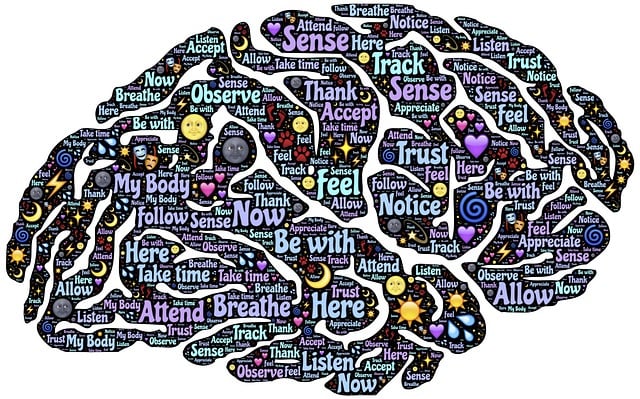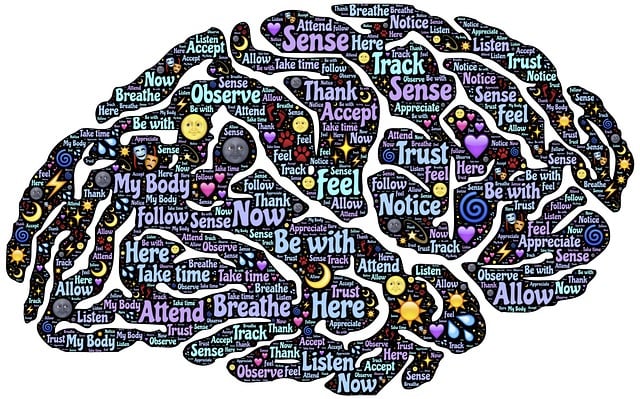In today's demanding work environment, "Therapy for Adults with Workplace Issues and Job Stress" offers crucial emotion regulation skills to thrive. Using techniques like mindfulness, CBT, and self-care practices, this therapy empowers adults to manage stress, enhance well-being, and improve job satisfaction. By addressing emotional challenges, individuals can navigate workplace complexities more effectively, leading to happier, healthier work environments.
Emotion regulation is a vital skill, especially in today’s demanding work environments. This article explores effective strategies to enhance workplace performance by tackling job-related stress and its impact on adults. We delve into common challenges faced, offering insights into therapy techniques that teach emotion regulation skills. Additionally, we discuss the importance of self-care strategies to mitigate workplace issues at home. Discover how these practices can revolutionize your professional life by fostering resilience and overall well-being.
- Understanding Emotion Regulation and Its Impact on Workplace Performance
- Common Challenges Adults Face in Managing Job-Related Stress
- Effective Therapy Techniques for Teaching Emotion Regulation Skills
- Implementing Self-Care Strategies to Mitigate Workplace Issues at Home
Understanding Emotion Regulation and Its Impact on Workplace Performance

Emotion regulation is a vital skill to master, especially in navigating the complexities of the modern workplace. In today’s fast-paced and often demanding work environments, individuals face various stressors and emotional challenges that can significantly impact their performance. Understanding emotion regulation techniques becomes crucial for managing these obstacles effectively. By learning to recognize and control their emotions, adults can enhance their overall well-being and productivity at work.
Therapy for Adults with workplace issues and job stress often incorporates mood management strategies and self-awareness exercises to help individuals cope. These practices enable employees to reduce stress, improve focus, and make more rational decisions under pressure. Through various techniques, such as mindfulness meditation and cognitive reframing, workers can develop a healthier relationship with their emotions, leading to increased resilience and better job satisfaction. Effective emotion regulation is not just about managing negative feelings but also enhancing positive emotions, fostering a happier and more fulfilling work environment.
Common Challenges Adults Face in Managing Job-Related Stress

Many adults struggle with managing job-related stress, which can stem from demanding workloads, tight deadlines, and high-pressure environments. The constant need for productivity and performance can lead to chronic stress, affecting both mental and physical health. In today’s fast-paced work culture, where long hours and remote work have become the norm, adults often find themselves burning out without adequate coping mechanisms.
Therapy for Adults offers a solution to these workplace issues and job stress by providing effective tools for emotion regulation. Through various techniques such as mindfulness training, cognitive behavioral therapy (CBT), and relaxation exercises, individuals can learn to identify and manage their emotional responses. Mental Health Education Programs Design focused on stress reduction methods empower employees to create healthy boundaries, improve time management skills, and foster a sense of resilience. Additionally, Public Awareness Campaigns Development can play a crucial role in normalizing the conversation around job stress, encouraging open dialogue, and promoting self-care practices within organizations.
Effective Therapy Techniques for Teaching Emotion Regulation Skills

Teaching emotion regulation skills through effective therapy techniques is a powerful tool for adults navigating workplace issues and job stress. Cognitive-Behavioral Therapy (CBT), for instance, has proven to be highly beneficial in helping individuals identify and change negative thought patterns contributing to emotional distress. By focusing on present-moment awareness and mindfulness, CBT enables clients to develop strategies for managing intense emotions, enhancing their ability to make more rational decisions at work.
Additionally, Empathy Building Strategies play a crucial role in therapy sessions aimed at emotion regulation. Therapists can foster a supportive environment by actively listening and reflecting on clients’ feelings, helping them feel understood and validated. This process not only strengthens the therapeutic bond but also empowers individuals to better understand their emotions and those of others. Integrating Self-Care Practices into therapy can further reinforce emotion regulation skills by encouraging clients to prioritize their well-being both within and outside the workplace. Stress Management Workshops organized by organizations can complement these therapy techniques, providing practical tools and strategies for managing job-related stress in a group setting.
Implementing Self-Care Strategies to Mitigate Workplace Issues at Home

In today’s fast-paced work environment, adults often face significant workplace issues and job stress that can impact their mental well-being. Implementing self-care strategies is a powerful tool to mitigate these challenges at home. Engaging in regular physical activity, maintaining a balanced diet, and securing adequate sleep are fundamental components of self-care that contribute to emotional intelligence and resilience. These practices not only enhance overall health but also provide an effective buffer against the adverse effects of stress.
Additionally, seeking therapy for adults can offer tailored solutions for managing workplace issues and job stress. Trauma support services, for instance, play a crucial role in addressing underlying emotional wounds that might be exacerbating professional struggles. Risk management planning for mental health professionals is another essential aspect, ensuring individuals have the tools to navigate stressful situations competently. By incorporating these self-care strategies and seeking appropriate therapy, adults can foster a healthier balance between work and personal life, ultimately enhancing their overall productivity and job satisfaction.
Emotion regulation is a vital skill for navigating workplace issues and job stress. By understanding common challenges adults face in managing job-related stress and implementing effective therapy techniques, such as mindfulness and cognitive behavioral therapy, individuals can significantly enhance their resilience and performance. Integrating self-care strategies into daily routines further reinforces emotional well-being. With the right tools and support, adults can overcome workplace stressors and thrive both professionally and personally, leading to a healthier and more productive environment.














